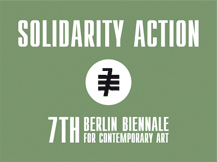After years of bad government and distorted information in the Berlusconi era, the country is trying to recover, but this will take a long time to happen. In the meantime, strange short-circuits are happening: on the one hand we have museums that demonstrate important cultural vitality, while on the other they are struggling to keep their programming in step with international standards, because of the reduction of public funding. In Rome the two new museums, MAXXI and Macro, are good examples of this difficulty. Their construction was very costly, and brought the city two international centers of cultural production and consumption. Nevertheless, it is clear that these museum structures, like all the others, do not have comparable economic resources to put into programming, or even into the day-to-day management of the spaces. In some cases content is penalized, in other cases there is even the risk of closure – just look at the MADRE or the PAN in Naples, opened with great ceremony during the last decade. The same phenomenon impacts not only museums, and Teatro Valle is an example of this: after its funding was cut, it avoided closing only thanks to a self-managed occupation by workers and volunteers. In certain cases private sponsors can make up for the cuts imposed on the institutions. Collectors, galleries or the “friends of the museum” support the activities of the institutions in question, making projects happen that would otherwise be impossible. In Italy the cultural question has to be approached in the widest sense of the term. If this is not understood, art and culture will never be integrated in real life and will never represent an element of growth for the country. The interlocutors are lacking, and in this sense it would be positive to have an Arts Council, as in England, to coordinate funding for art, music and entertainment, to support artists, to offer internships for training abroad to those who are taking their first steps in this field. Education and the academies play a fundamental role, as would the creation of spaces of experimentation capable of operating in parallel with institutional programming, workshops for youngsters, initiatives of integration with the urban fabric. In short, we need a structural reform because there is a lack of a ‘culture of culture’.
ILARIA MAROTTA and ANDREA BACCIN
Founders of Cura, a magazine, a publishing house and a project room based in Rome since 2009.


